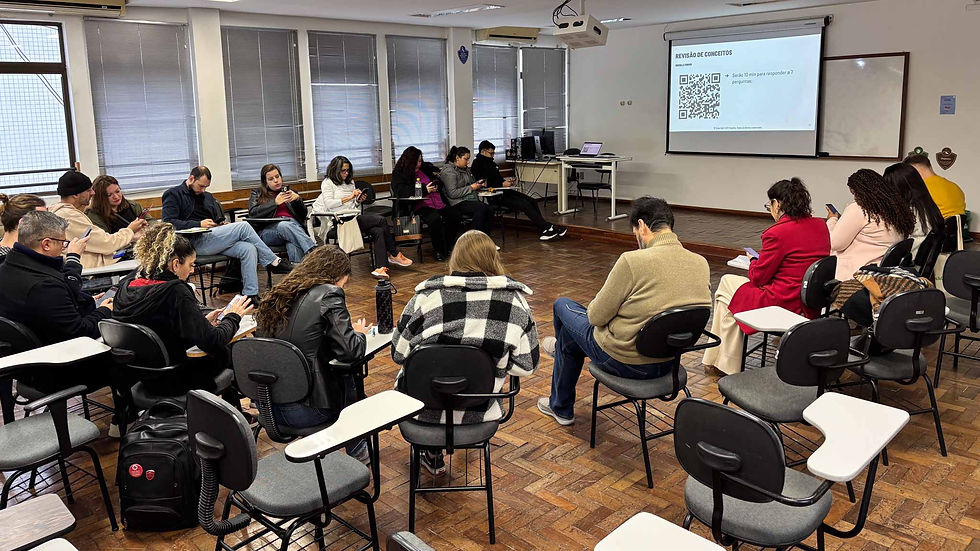Workshop discusses health contingency plan for floods, discussing myths, evidence and SUS strategies
- Abner Willian Quintino de Freitas
- Jul 16
- 2 min read
On Saturday, July 12, 2025, the Hopeful School hosted an innovative workshop focused on developing health contingency plans for floods. Held in Room 623 of Building 1, the event brought together health professionals, students, and public managers to reflect on the role of Brazil’s Unified Health System (SUS) in disaster scenarios — particularly in the aftermath of the May 2024 floods in Rio Grande do Sul.

The workshop combined historical foundations, scientific evidence, and hands-on prototyping exercises. The morning began with a thought-provoking reflection on flood myths in ancient traditions, featuring an analysis of Frazer (1918) and the presence of flood narratives across multiple cultures as symbols of destruction and renewal. The aim was to recover collective memory in order to awaken contemporary awareness about the impacts of natural disasters.
Next, participants explored basic disaster concepts, based on definitions from PAHO, UNDRR, CRED, and the Brazilian Disaster Classification System (COBRADE). Epidemiological data on the burden of disease caused by disasters in Brazil from 2013 to 2021 was also discussed, with emphasis on public health effects such as trauma, infectious disease outbreaks, mental distress, and the collapse of sanitation and healthcare services.

A key focus of the workshop was a detailed analysis of the Contingency Plan for Public Health Emergencies Caused by Floods (Brazilian Ministry of Health, 2024). Participants examined the plan's response levels, tools such as the SIME system, and the importance of strategic stockpiles and rosters of trained professionals.
In the final session, attendees were invited to prototype their own contingency plans, based on three pillars: management, surveillance, and clinical care. The activity was enriched by a discussion on the resilience of the SUS in the face of extreme events, using the PAHO/WHO Hospital Safety Index and concepts from resilient complex systems theory (Woods, 2018).
More than just a training session, the workshop was a call to action — to prevention, preparation, and the strengthening of SUS as a critical infrastructure for disaster response.



Comments